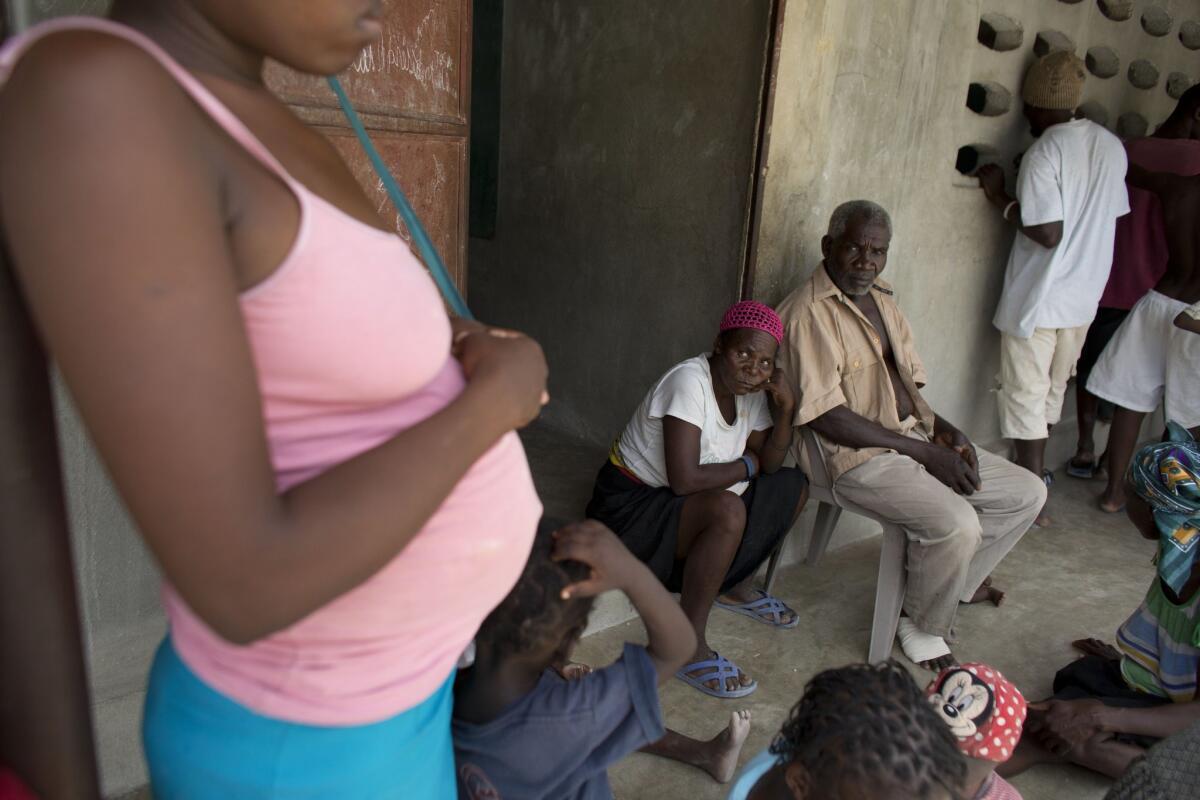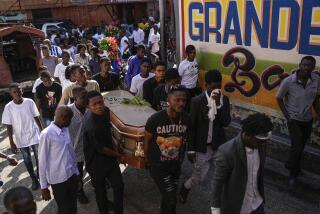Editorial: In the Dominican Republic, a manufactured humanitarian crisis

Haitians recently deported from neighboring Dominican Republic sit outside a school building where residents have allowed them to stay in the village of Fonbaya on June 18.
It’s a crisis that need not — and should not — occur. The Dominican Republic, already poised to deport hundreds of thousands of Haitian migrants who it claims are in the country illegally, could also end up shipping native-born Dominicans of Haitian descent across the border too. That would be especially despicable and heartless; the mere idea has rightfully drawn international condemnation.
Countries are free to define whom they do and do not consider citizens, and, for that matter, who can live within their borders. But Dominican law formerly declared anyone born in the country, regardless of the immigration status of their parents, to be a citizen. That was significant for the children of Haitian immigrants, most of whom had come to work in the nation’s sugar cane fields, private homes and small factories.
Then a 2010 constitutional amendment was passed, limiting Dominican citizenship to children of legal immigrants, or those who had at least one parent of Dominican ancestry. In an appallingly unjust decision, the Dominican Constitutional Court ruled in 2013 that the definition applied retroactively to 1929, threatening to render tens of thousands of Dominican-born residents stateless. Under international pressure, the legislature passed a law a year later establishing a path to citizenship, but the barriers it created were high.
So what will happen now? Last year, the government ordered all of its more than 500,000 foreign-born workers — overwhelmingly Haitian — to register if they wanted to remain in the country. Those who failed to do so now face deportation. It is unclear what will become of those people who were born on Dominican soil to Haitian parents.
Human rights activists say the situation is framed by the two nations’ long-fractious history, marked by economic disparity and racism. In 1937, Dominican strongman Rafael Trujillo’s troops killed as many as 20,000 Haitians at the border, a purge that weighs bitterly in Haitian memory. More recently, Human Rights Watch has reported periodic immigration sweeps in which thousands of people were rounded up and herded to the border, often based on little more than skin color. (Most Haitians are descended from African slaves.) This week, government officials were sending mixed signals on the possibility of new roundups, and those affected by the retroactive citizenship rule fear they too will be deported.
That would be a tragedy. After a lifetime in the Spanish-speaking Dominican Republic, few speak Creole or French, the languages of Haiti, and many don’t qualify for citizenship in Haiti either. Even if they did, the country is unable to house and care for its existing population. The Dominican government should heed international calls to abandon this program, and avoid adding to the woes of the world.
Follow the Opinion section on Twitter @latimesopinion and Facebook
More to Read
A cure for the common opinion
Get thought-provoking perspectives with our weekly newsletter.
You may occasionally receive promotional content from the Los Angeles Times.










